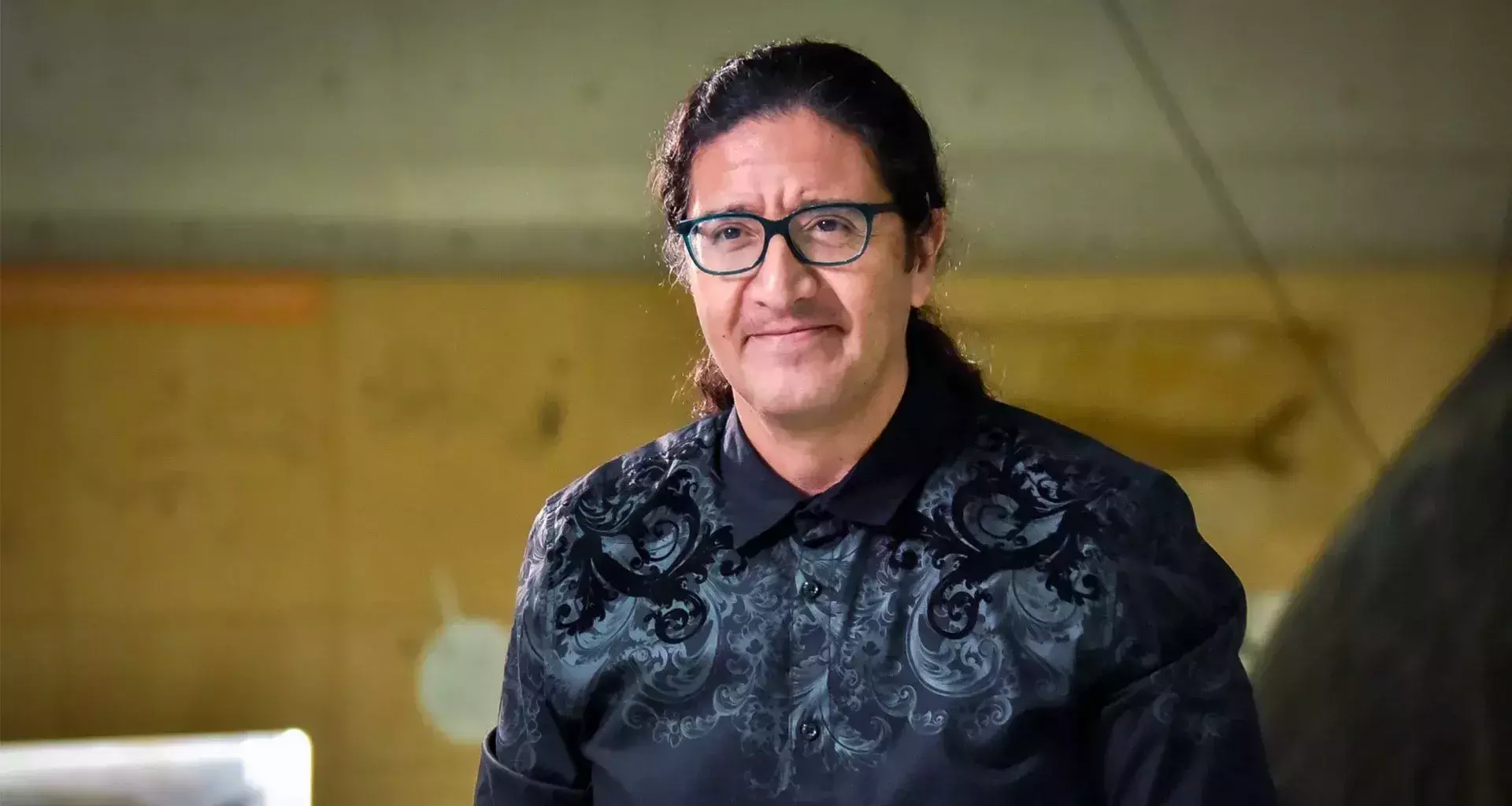“I wasn’t supposed to be the narrator. I think it was supposed to be the actor who plays Wolowitz in The Big Bang Theory, but I did a test and the director liked it.”
That’s how Manuel Calderón de la Barca, a Mexican scientist who works at the Large Hadron Collider (LHC), came to be the narrator of the Secrets of the Universe IMAX documentary.
In recognition of his experience, the Tec de Monterrey graduate in Engineering Physics was invited to conduct research into elementary particles of matter at the biggest particle accelerator in the world.
This physicist, whose team has discovered a new state of matter, tells CONECTA about the crossroads he faced years earlier when his graduate application was turned down by universities in the United States.
“When the letters came from the universities I had applied to for my doctorate, they all said, “We regret to inform you”. I felt bewildered and despondent because that’s where my dreams lay,” he remembers.
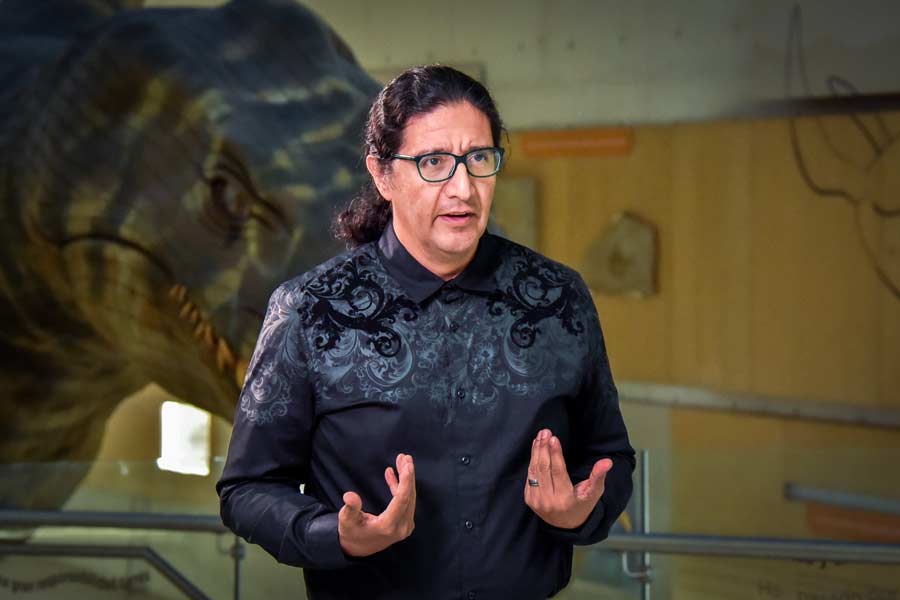
Turned down after applying to graduate programs in the United States
Even at a very young age, Manuel always knew what the purpose of his life was: to understand the universe.
“Questions like ‘What are we made of?’ or ‘Where did we come from?’ led me to study physics and to understand nature,” he explains.
While he was studying on the Monterrey campus, he became intensely interested in researching particle physics and he was recommended to do a doctorate abroad.
Manuel, a Tec honor graduate, applied to at least five U.S. universities that had renowned physics programs, but none of them accepted his application.
He was depressed at first but, having given it some thought, the PrepaTec alumnus remembered the challenges his parents had had to deal with and how hard they had worked to get ahead.
“My mother and my father both had to overcome significant obstacles. They had both been raised by single mothers under hard conditions,” he remarked.
So he decided to do in a course at the National Polytechnic Institute’s Center for Research and Advanced Studies, where he came across an opportunity to go to the European Center for Nuclear Research (CERN, for its initials in French), which operates the LHC.
“I came across a bulletin announcing two summer internships sponsored by the Mexican Society of Physics; I got my act together and earned myself a place.”
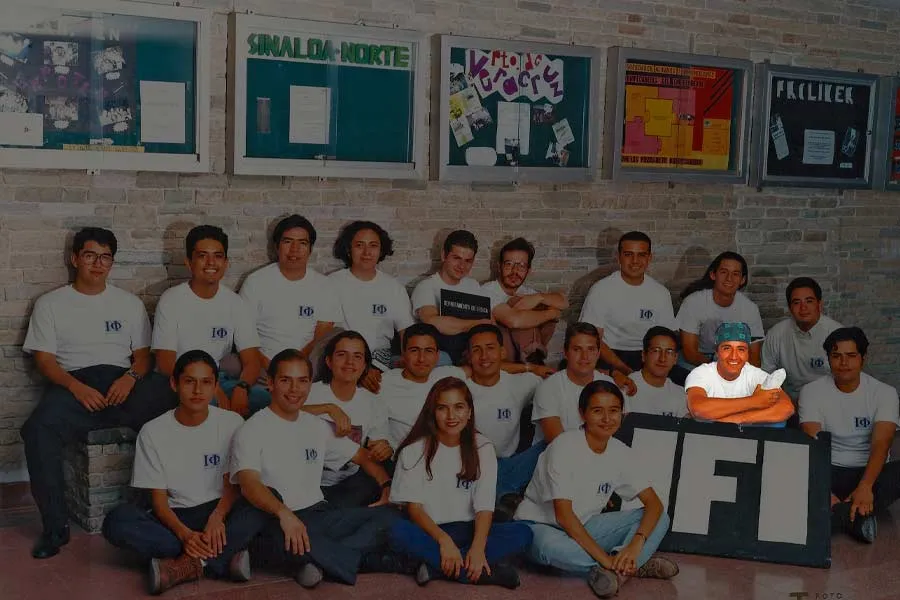
“Research was the answer”
During his summer internship, Dr. Calderón worked alongside other graduate students and researchers; there, he met the person who would become his thesis tutor.
“Going to CERN opened many, many doors, even before I got started on my doctorate. There, I started doing research and experiments,” he remembers with a smile.
Seven months later, universities once again began asking for applications for their doctorate programs. This time, senior researchers at several universities invited him to collaborate with them.
“All the universities accepted me. This time, the problem was deciding where to go. Research was the answer,” he remembers.
He finally chose to do his doctorate at Yale University.
Just before he finished his graduate studies, an accelerator for heavy ion collisions was opened at Brookhaven National Laboratory on Long Island, very close to where he was studying.
“My thesis was one of the first to be done using data from that new accelerator; the first research ever done by a student using data from that experiment was mine,” he recalls.
While he was worked at the ion accelerator, he was given the opportunity to become a teacher at the University of California, Davis (UCD).
From consultant to documentary narrator
Now, as a scientist, he is still searching for answers to the great unknowns in the universe and collaborates with others engaged in the same search.
That’s how he met Stephen Low, a director of IMAX documentaries, who invited him to become the first expert physics consultant for the film entitled Secrets of the Universe.
The director was also “to blame” for the Mexican scientist appearing in front of the cameras to talk about the work being done at the Large Hadron Collider.
“He told me, ‘We’re going to put you in front of the camera. You’re so full of life,” Manuel recalls, grinning broadly.
The production team liked his performance so much that Manuel stayed on as the documentary narrator.
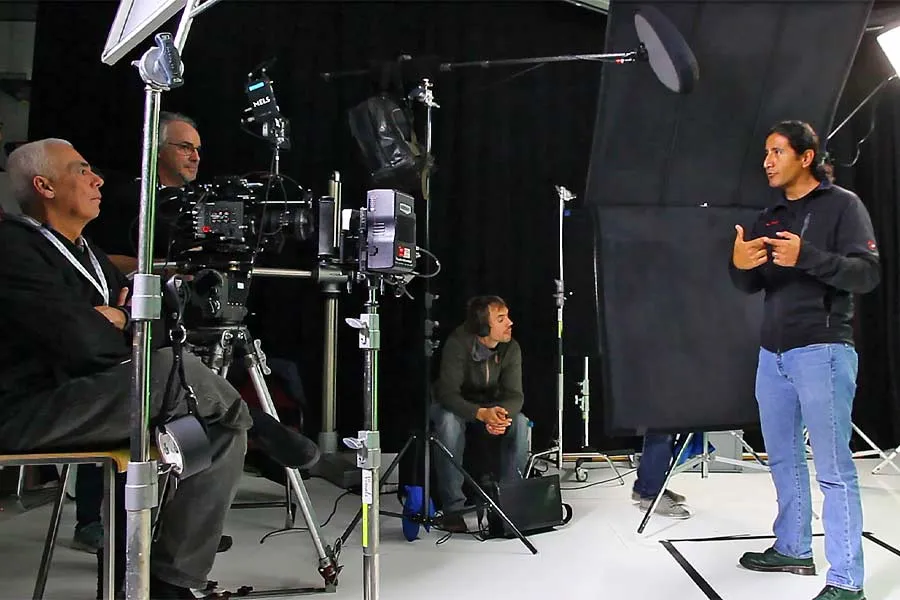
Discovering a new state of matter
In the film, Calderón presents milestones in physics and talks about his team’s experiences and findings when researching elementary particles at CERN.
For example, he explains one of the discoveries his team made by colliding atoms, protons, quarks, and other elementary particles.
“We discovered a new state of matter which we called quark gluon plasma (...) a plasma a hundred thousand or a million times hotter than the Sun.
“At the moment, we don’t know what the applications might be or what good it will do us knowing that this kind of matter exists; but I do know that one day there will be technology that makes use of this discovery,” he says.
At the beginning of the film, the researcher also appears on screen snowboarding down a mountain, which is one of the sports he does when he feels like finding a connection with nature and the universe.
“I also go hiking, skydiving, and scuba diving, all of which is simply to experience and feel at one with nature in the broadest sense,” he remarks.
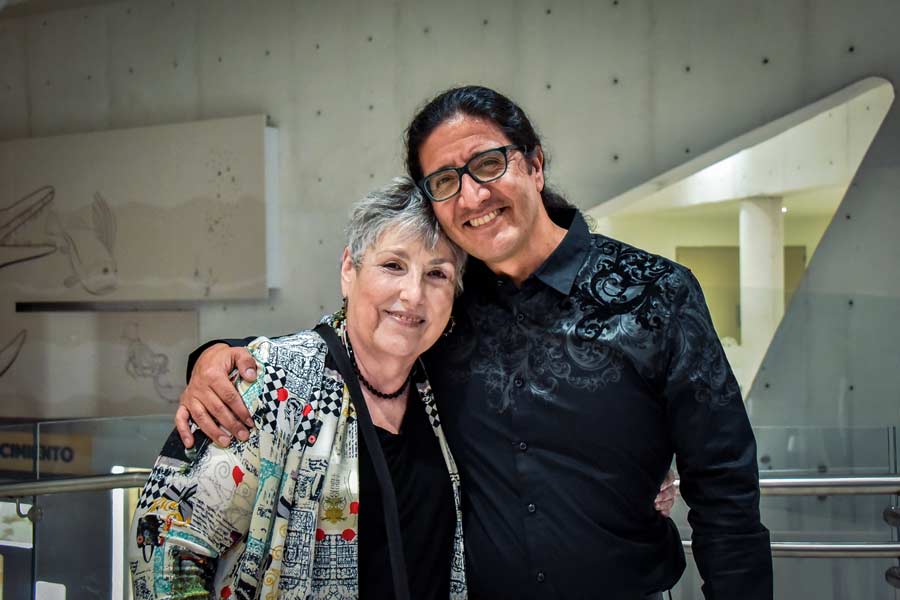
Revisiting the past: Back at PrepaTec
Dr. Calderón recently visited Papalote Museo del Niño, a children’s museum in Monterrey, to present the film. There, he ran into people he had thought highly of in the past.
The highlight of meeting up with friends and family was getting together and sharing a warm hug with Silvia Martínez, his former calculus teacher on the Bicultural High School Program at PrepaTec Eugenio Garza Sada.
“She helped me understand concepts like velocity and acceleration; she would say, ‘Acceleration is the velocity of speed.’ When I told her I remembered that, she shed a tear.”
“I remember when I first stated my intention to devote myself to physics, there were several people who didn’t understand and some even asked me, ‘How on earth will you make ends meet?’”.
Promoter of women in science
But not only does Manuel work hard at understanding the universe, he also wants to be a promoter of women in science.
“Half of the people on our planet are women: we’re wasting all that potential. If we want to solve global problems, we need to get everyone involved.”
On his return to Monterrey, the Tec graduate also visited the PrepaTec where he studied as a young man who dreamed of becoming a video game developer before discovering his passion for physics.
“I remember when I first stated my intention to devote myself to physics, there were several people who didn’t understand and some even asked me, ‘How on earth will you make ends meet?’” he says nostalgically.
During his trip down memory lane, he became aware of the opportunities that exist today and the progress that has been made for new generations who, like him, dream of understanding the universe.
“I’m very excited to see what they’re going to be able to do. I hope they get a lot further than I have,” says the scientist.
YOU MIGHT ALSO LIKE TO READ:

